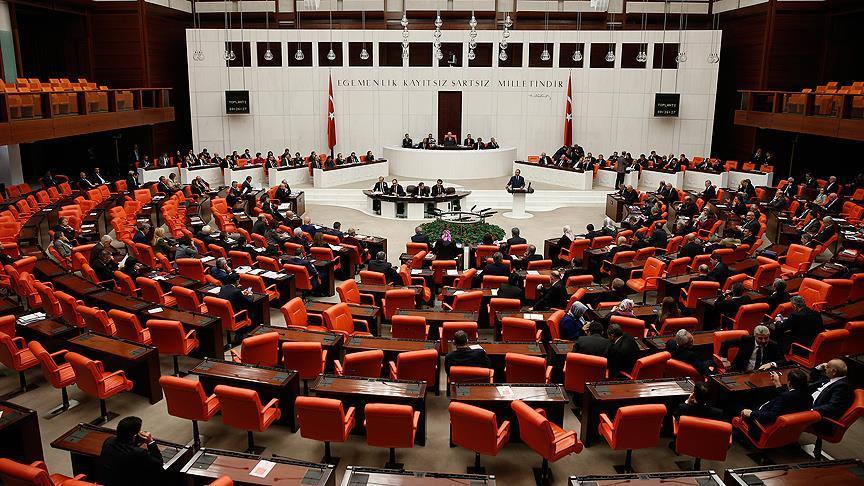Turkish parliament adopts nation’s budget for 2018
Budget result of 12-day budget marathon by lawmakers

By Muhammet Emin Avundukluoglu
ANKARA
Turkish lawmakers approved the country’s 2018 budget early Saturday after a 12-day marathon session in the general assembly.
Following the vote, Prime Minister Binali Yildirim thanked lawmakers for their efforts during the budget debate.
During his speech, Yildirim recalled the UN General Assembly’s decision to reject the U.S. move to recognize Jerusalem as Israel’s capital.
"With this decision, not only Jerusalem, Palestine but also the honor of humanity won," he said.
"The decision of the American administration, which did not have any legal legitimacy, [was] unfair and arbitrary."
Yildirim also urged the international community to find a solution to the Palestine issue following the UN resolution.
Parliament Speaker Ismail Kahraman announced the budget received the backing of 305 lawmakers while 124 voted against it in the 550-seat chamber.
Highlights of the government’s spending plans include raising spending on education to 134 billion liras ($34.92 billion), taking education expenditure to around 18 percent of all public spending.
Finance Minister Naci Agbal said in October that budget spending for 2018 would amount to 762.8 billion liras ($198.8 billion). Revenues are expected to total 696.8 billion liras ($181.6 billion), including nearly 600 billion liras ($156.4 billion) in tax revenue.
Around 85 billion liras ($22.2 billion) is earmarked for public investment, with nearly 30 percent to be spent on transportation. Ten percent of investment will be directed to the healthcare sector while agriculture will receive 12 percent.
Economic growth was higher than expected in the first six months of 2017, at 5.2 percent in the first quarter and 5.1 percent in the second, according to the Turkish Statistical Institute.
By comparison, growth hit 5.2 percent in 2014, 6.1 percent in 2015 and 2.9 percent in 2016.
Ankara is targeting growth of 5.5 percent for 2017 that it hopes to carry through to 2020, according to a medium-term economic program announced in September.






